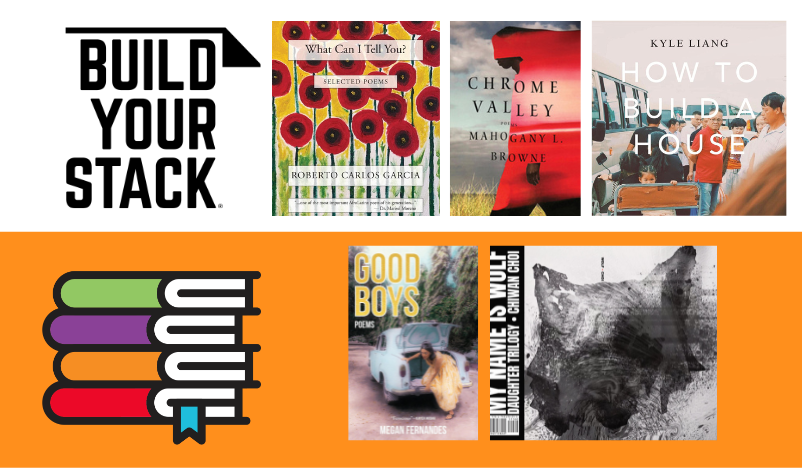This blog post was written by NCTE member Darius Phelps, member of the Build Your Stack® Committee. This post is part of Build Your Stack, an NCTE initiative focused exclusively on helping teachers build their book knowledge and their classroom libraries. Build Your Stack provides a forum for contributors to share books from their classroom experience; inclusion in a blog post does not imply endorsement or promotion of specific books by NCTE.
As we move toward rehumanizing and decolonizing our curriculum, racial literacy and radical love should be at the forefront of everything we do. There is immense power behind the pen as we work on rewriting our narratives, especially as people of color, and the following poets teach us how to do just that as they bear their souls and become vulnerable.
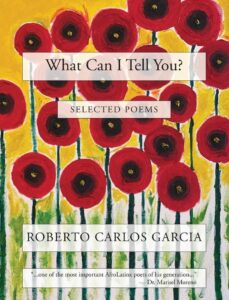 What Can I Tell You? by Roberto Carlos Garcia
What Can I Tell You? by Roberto Carlos Garcia
As I read Roberto’s new collection of poems, What Can I Tell You?, I pondered the question, What does it mean to truly be born again? Immersed in the pages, I found myself as a fellow man of color—my trials and triumphs—being reflected, acknowledged, and most importantly, heard. Roberto’s journey and work is one that has empowered, emboldened, and inspired me as a poet myself to rise from my own ashes, ready to speak my truth.
With his firsthand account, we witness him bearing his inhibitions, pain, and searching for what it truly means to love. He reminds us that poetry is a world where our pens, our art, and our performance have the power to transform lives, nourish souls, and heal hearts. It is through his storytelling that we are instantly fixated, illuminated, and ultimately, emancipated.
Chrome Valley by Mahogany L. Browne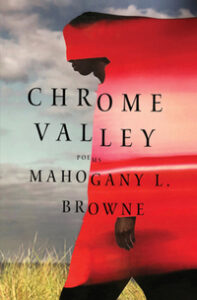
Her newest collection of poetry, Chrome Valley, was just published this spring by Norton. With Chrome Valley, Mahogany L. Browne rises into her power as a wounded healer. Rather than running from her demons, Browne addresses them and her wounds head on—beckoning them with open arms. Amplifying strength, beauty, and various forms of love as a woman of color, Browne’s work serves as a true testimony that will break barriers for readers everywhere.
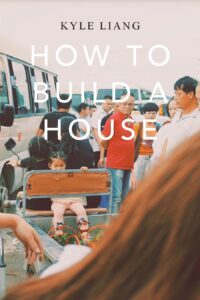 How to Build A House by Kyle Liang
How to Build A House by Kyle Liang
In his first collection, How to Build A House, Liang takes the reader on an intimate journey with his poems, reminiscent of journal entries meant only for his eyes. We follow him as he speaks his truth unapologetically, leaving no stone unturned from start to finish. Beginning with our adolescent youth, if we begin to be more intentional with amplifying diverse voices, perspectives, and views on taboo subjects such as grief and trauma, we can begin to order our steps on the intentional journey toward healing.
Good Boys by Megan Fernandes 
With a voice that reverberates immense power, Megan Fernandes’s Good Boys is a must-read, rooted in exploring the true meaning of “home.” Through her firsthand account of navigating the world as a descendant of the Indian Ocean diaspora, Fernades decolonizes our mindset and beckons us, “if only for a moment” to “Come home,” ultimately leading us to discover that a true home is not with a physical person or place, but within us.
 My Name is Wolf by Chiwan Choi
My Name is Wolf by Chiwan Choi
Concluding the trilogy on a powerful note, My Name is Wolf dives into his relationship with the loss of his daughter as a ghost. Throughout the book, he takes us on an intimate journey with the paranormal, as he recognizes and honors his pain. Each poem reverberates with a sense of purpose, activism, and courage. With every single word, phrase, and backslash Chiwan writes from a place of questioning, exploration, and excavation—sending immediate chills up your spine, leaving the reader speechless and in awe. An inspiration to readers, poets, and people of color everywhere, Chiwan has built a legacy that will stand the tests of time.
NCTE and independent bookstores will receive a small commission from purchases made using the links above.
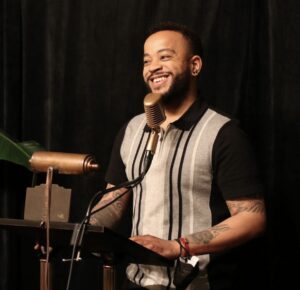
Darius Phelps is a doctoral student at Teachers College, Columbia University. He is an adjunct professor at CUNY Queens, Hunter College, and Teachers College. An educator, poet, spoken word artist, and activist, Darius writes poems about grief, liberation, emancipation, reflection through the lens of a teacher of color and experiencing Black boy joy. His poems have appeared in NYSEC’s English Record, NCTE’s English Journal, Pearl Press magazine, and ëëN magazine’s “The 2023 Valentine Issue.” Recently, he was featured on WCBS and highlighted the importance of Black male educators in the classroom. Darius can be contacted via email.
It is the policy of NCTE in all publications, including the Literacy & NCTE blog, to provide a forum for the open discussion of ideas concerning the content and the teaching of English and the language arts. Publicity accorded to any particular point of view does not imply endorsement by the Executive Committee, the Board of Directors, the staff, or the membership at large, except in announcements of policy, where such endorsement is clearly specified.

